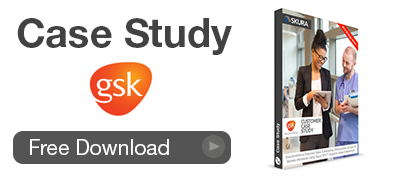Today’s article is Part 2 of our mini series exploring what healthcare providers desire from their pharma industry counterparts.
In Part 1 we discussed how healthcare providers (HCPs) want pharmaceutical sales reps (PSRs) to, raise awareness about disease, improve their understanding of patients’ lives, create treatment packages, help with research to educate doctors on rare diseases, provide education for patients and physicians, and produce new drugs and data.
The information found here is based upon Eye for Pharma’s excellent 2015 whitepaper “HCPs: We Want Partnerships with Pharma”, where they surveyed 549 HCPs from various specialities. Asking them ‘what can pharma do to improve patient care?’
We are calling it AUTHENTICITY.

This article will explain how HCPs want pharma sales and marketing teams to utilize technology, ask for patient input, build a support community, become more involved in the healthcare process, and work as a team. The final point will be to discuss why PSRs are working hard.
Technology
Pharma can develop tools for individual patient follow-up, improving self-management and tracking. These devices will help patients understand their health problems, and create a two-way dialogue between doctors and patients. Pharma marketing content and resources need to be present on the platforms that doctors and patients are using.
Technology can be used for electronic documentation, online consultations, and the delivery of care at the bedside or home - saving time and reducing the pressure on HCPs.
 (Quote sourced from: Eye For Pharma, 2015)
(Quote sourced from: Eye For Pharma, 2015)
Input
Pharma reps should listen to the input from patients and physicians. When they actively listen to these inputs they can enhance their understanding of the patient's needs and successfully work toward developing programs and treatments that are most needed within the community.
Pharma can also use this input to increase patient choice, providing them with more options for self-care and independence.
Community
The pharma industry should be working to facilitate and/or build support communities to connect patients, and let them know that they are not alone. These communities can range from local meetings to online hubs. Another great opportunity is to help with creating outreach programs for the families of patients; these are proven to help relieve some of the stress and anxiety placed upon the family unit.
Involved
HCPs want PSRs and companies to become more involved in the healthcare process. They need to take an active role in the lives of patients.
The Perfect Patient, as described by HCPs, is an individual who is compliant and educated. This is in contrast to the high rates of non-adherence among patients. Pharma can become more involved in finding solutions for dealing with patient behaviour, including research into packaging types and feedback mechanisms that will help to improve adherence.
Dr. Julian Spinks, who has been a general practitioner for nearly 30 years, has a suggestion for how pharma can improve adherence: “They need to include information on why they are being told to take the medication. Tracking is important also – if the app says that a figure, say blood pressure, has changed due to adherence, it motivates patients because the benefits are being tracked. It’s that nudge factor that can turn adherence into something patients want to do.” (Source: Eye For Pharma, 2015).
Teamwork
HCPs and pharma must develop partnerships. HCPs want supportive, long-term partnerships with well-informed PSRs.
By fostering relationships, building trust, and working together, they can achieve their shared goal of improving patient treatments and outcomes. When pharma sales reps deliver authenticity they can help others.

Pharma reps must work as a team, empowering HCPs and patients by providing them with resources, information, and education.
Why?
Improving patient care and outcomes is the most important goal for both pharma sales reps and healthcare providers. HCPs want PSRs to focus on educating them about the research behind their products, rather than on promotional selling materials. Valuable, trust-worthy, and non-biased information is the key.
When HCPs get what they want and need from pharma they can improve the healthcare process.
This is exactly the kind of outcome we delivered to GSK through our adaptive sales enablement program. PSRs are able to engage HCPs through a channel and time frame what works for everyone involved. The backend data from these exchanges informs the content team about the kind of material they should be creating in order to add value and invite further engagement from HCPs. Download the whitepaper below to learn more.
Conclusion
HCP desire AUTHENTICITY from pharma.
That’s really what it boils down to. You can’t fake authenticity. You have to build it into the way you engage, and into the value that you deliver.
If you’re struggling with gaining access to HCPs, delivering content they want to use, or earning trust for long-term outcomes; you may be in need of an adaptive pharma sales enablement solution.
Request a demo below and let our sales specialists show you just how easy ‘authenticity’ can be.












